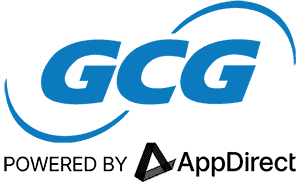Today’s organizations need an accurate, streamlined way to manage resources and track data within the business. Once, this was done longhand. Then, spreadsheets became the norm. The challenge here is that those methods are cumbersome, inaccurate, and difficult to manage. Enter ERPs – these software platforms offer a number of benefits for large organizations, although choosing the right one from the myriad options out there can be daunting.
What Is ERP Software?
ERP stands for enterprise resource planning. These systems are available in a couple of different formats. Standalone options can be used without the need to tie them into other business systems, while suites integrate with your organization’s other systems, providing a seamless solution (albeit a more complex and costly one).
Oracle explains ERPs as systems that, “tie together and define a plethora of business processes and enable the flow of data between them. By collecting an organization’s shared transactional data from multiple sources, ERP systems eliminate data duplication and provide data integrity with a single source of truth.”
Each ERP developer bakes in their own unique set of functionalities and features, but there are a few common ones found in most software options. These can include:
- Accounting
- HR management
- Manufacturing and delivery planning
- Supply chain management
- Product planning
- Purchase planning
- Inventory management
- CRM (customer relationship management)
However, as mentioned, there are numerous suites and standalone solutions out there, and they do not all measure up. It is critical that you are able to make an informed decision when it comes to the ERP that you choose for your organization. Below, we have compiled a list of the top ERP solutions available on the market, complete with a brief explanation to help guide your choice.
Top ERP Solutions in the Market
- NetSuite: Once upon a time, NetSuite was primarily focused on accounting only. However, it has evolved significantly, and today offers full functionality, covering everything from business intelligence to human resource management. With over 20,000 companies currently using NetSuite, it is one of the top-rated options available. It can also be deployed in the cloud or installed on workstations and works on Mac, Windows, and Linux.
- IQMS Manufacturing ERP: Designed with product manufacturers in mind, this ERP solution works well for small, medium and large firms, and is used by firms in the aerospace sector, as well as in the food industry, electronics, plastics manufacturing, the packaging industry, and in consumer product development. Like NetSuite, it works on all operating systems and can be cloud-based or installed locally.
- Acumatica: Acumatica is designed to be cloud-based, but can be installed locally. It is ideal for midsized and smaller firms and delivers ERP solutions that span virtually any business need, from accounting and finance management to e-commerce and construction.
- E2: E2 actually offers two different ERP options – E2 Manufacturing and E2 Shop. Both are specialized for individual niches, but each offers industry-leading functionality, including resource planning, estimating, customer management, and accurate data analytics. Note that these systems only operate on Windows.
- abas ERP: Best suited for small and medium businesses, this ERP offers web-based solutions for distribution, e-commerce, and other needs. It can be configured for both vendors and customers, and the workflow editor plugin allows users to create new workflows to fit their specific needs.
- Deltek for Professional Services: This ERP offers project-based functionality including resource management, time and expense management, project management, client management, and more. It is scalable for all sizes of business and works on all operating systems.
These are just a few of the top-rated ERP solutions out there. Others worth considering include SYSPRO, Apprise, Paragon ERP, Aquilon ERP, Centralbos, and xTuple to name only a few.

